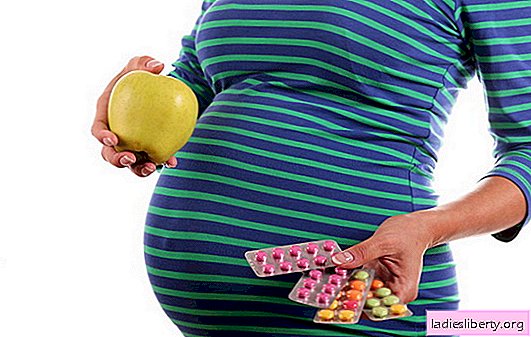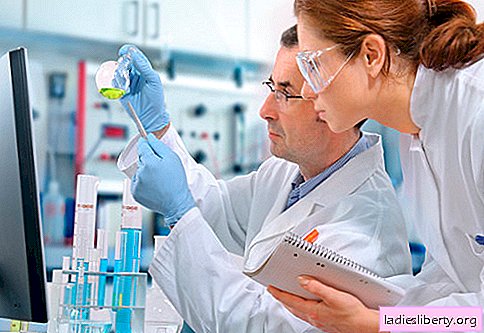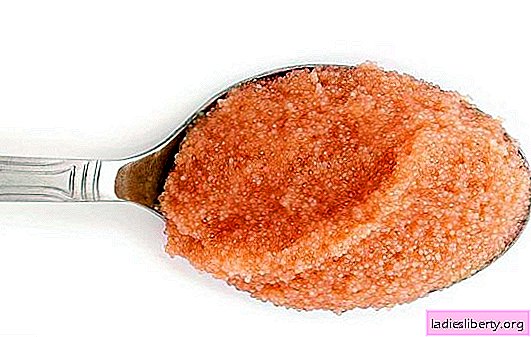
Maintaining a balanced diet is the basis for the development of a healthy fetus during pregnancy.
Many women do not know exactly what vitamins to take during pregnancy, because not all nutritional supplements are allowed in this position.
Let us consider in more detail this important issue.
What vitamins to drink during pregnancy and whether to take them at all
It is not necessary to take vitamin complexes for all pregnant women. The need for additional vitamin "increase" is determined in each case, depending on the age of the woman in labor, the course of her pregnancy, as well as the general health of the future mother.
Most often, doctors recommend taking vitamins for pregnant women in such cases:
1. If the pregnant woman is not able to fully eat.
2. If a pregnant woman has previously suffered from diseases associated with acute iron or vitamin B12 deficiency.
3. Women over 30 years old.
4. Women whose previous pregnancy ended in miscarriage or premature interruption of gestation.
5. With abnormalities in the development of a previous pregnancy.
6. If a pregnant woman has pathologies in the cardiovascular or digestive system.
7. With reduced immunity.
8. With multiple (2-3 fetuses) pregnancy.
9. In case of serious infectious or catarrhal diseases transferred during pregnancy.
If a woman in labor can eat balanced, then she just won’t need additional vitamins, because all the nutrients her body will receive from food.
In addition, it is important to know that an excess of vitamin A can also be harmful, as it will lead to the development of hypervitaminosis. This, in turn, will negatively affect the development of the fetus. For this reason, vitamins should be taken only as prescribed by the supervising doctor, who will select the right dose and prescribe the frequency of intake of nutrients.
What vitamins should be taken during pregnancy and most importantly, when
Thermal processing of products, their improper storage, transportation and the use of fertilizers can destroy vitamins in food products, so far from always consumed food allows expectant mothers to fully compensate for the deficiency of one or another element. It is necessary to introduce them artificially, using individual drugs or entire complexes created specifically for pregnant women. For example, recently obstetrician-gynecologists are increasingly giving preference and recommend the Finnish vitamin and mineral complex "Minisan Mama", which can also be purchased in pharmacies of the Russian Federation. This complex is suitable both during pregnancy and breastfeeding. The complex contains 11 important vitamins and 6 minerals. Among them, the key to a successful pregnancy is folic acid and iron, as well as magnesium and iodine.

What vitamins to drink during pregnancy in the first trimester
The first trimester of pregnancy is the most basic, since it is during this period that the foundations of the nervous system and future organs of the child are laid. It is recommended to take vitamins for 1.5-2 months from the moment of conception.
The most useful vitamins for this period are:
1. Folic acid. This vitamin is water soluble. It has a classification: B9. You need to start drinking it a month before conception, and finish - after the first trimester.
Folic acid is needed by the fetus for the normal development of the spinal cord, as well as the formation of its nervous system. This, in turn, will provide the unborn child with a healthy intellect.
The dosage for administration may be different. She is selected for each woman individually. Usually, doctors prescribe this vitamin in a dose of 0.4 mg to 0.7 ml per day. With prolonged use of hormonal birth control drugs, this dosage may be higher.
In addition to its main useful properties, folic acid helps in the correct coding of genetic information, eliminates the threat of miscarriage and fading of pregnancy.
With an acute lack of vitamin B9, there may be:
• fast fatigue of a pregnant woman;
• enlargement of the spleen;
• the development of abnormalities in the brain of the child;
• pallor and dizziness;
• the formation of small ulcers in the mouth;
• the development of various pathologies of the nervous system in the fetus.
It is also important to know that even with a well-balanced diet, a woman may not have enough folic acid, since when it gets into the body, it is absorbed only by half.
Most of all, this substance is contained in such products:
• asparagus;
• liver;
• Brussels sprouts.
2. Vitamin A It is prescribed in a dosage of 2500 IU. You need to take it in the first two months of pregnancy.
We need vitamin A to properly lay the foundation of the skeleton and the vision of the unborn child.
Important! Excess vitamin A is very harmful for both the fetus and the pregnant woman herself, so you need to take only the dose that the doctor will prescribe.
Most vitamin A is found in such foods:
• sea fish;
• fish fat;
• spinach;
• carrot.
It is important to know that vitamin A is fat-soluble, so in order for it to be better absorbed, it is better to take it with fats. For this, vegetables and fruits are recommended to be greased with heavy cream or sour cream. In addition, when taking the tablet form of vitamin A, the capsules can not be chewed, otherwise the vitamin will lose its properties. The same applies to taking other vitamin preparations.
3. Vitamin E need to be taken throughout the first trimester. Gynecologists also recommend drinking it a month before conception. The daily intake of vitamin E is 15 mg.
This useful substance normalizes the production of female hormones, which prevents the risk of miscarriage. In addition, it helps in creating a strong placenta and normalizes digestion.
Vitamin E is contained in such products:
• fat;
• sea buckthorn oil:
• eggs;
• beef meat;
• milk.
4. Vitamin B6 or Pyrodoxin. It reduces the manifestations of toxicosis, relieves nervousness and cramps. For the proper development of a small organism, vitamin B6 must be taken from the second month of pregnancy.
What vitamins should be taken during pregnancy in the 2nd trimester
In the second trimester of pregnancy, the fetus is actively developing. The correct development of the fetus largely depends on the woman’s nutrition in such a period. In the 2nd trimester, women are recommended to take such vitamins:
1. Iodine. It should be drunk to the expectant mother in a dosage of 250 mg per day. Contraindications to its use are some thyroid diseases.
Iodine is necessary for the unborn child to develop a strong skeletal structure and mental abilities. Scientists have proved that in those places where there is a lack of iodine in the diet, children are born with reduced mental capabilities.
With an acute lack of iodine, a pregnant woman will be lethargic and weak. Her hair and nails can become thinner, and her weight can quickly gain (due to metabolic disorders).
Iodine may not only be in tablet form.
Most of all in such products:
• sea salt;
• shrimp;
• dried figs.
2. Calcium. His daily norm is 15 mg.
Calcium is essential for the fetus to develop bone tissue, kidneys and the entire digestive system.
A lot of calcium in foods, especially in dairy and sour-milk products (kefir of different fat content, cottage cheese, milk, fermented baked milk, cheese, etc.).
A little less calcium in cabbage.
It is important to know that chocolate and coffee interfere with the complete absorption of calcium in the body, so they should not be combined at one time. Moreover, these products are best excluded from the diet during pregnancy, since they will not bring any benefits to the fetus.
What vitamins to drink during pregnancy in the third trimester
Most of all, in the last trimester, the body of a pregnant woman needs such vitamins:
1. Iron. Its allowable daily dosage is 30-50 mg.
Iron should be drunk to prevent the development of anemia, increase the tone of the uterus and strengthen the body before the forthcoming birth.
A lot of iron is found in young veal and turkey. After them comes beef. Moreover, it is best if such meat is consumed in boiled form.
Also, a small amount of iron is found in fish, eggs and vegetables.
2. Vitamin C. It is necessary for the normal development of all membranes of the placenta, maintaining immunity and resistance to various bacterial and viral diseases. It must be drunk by women who smoked before pregnancy. Its daily rate is 90 mg.
Most vitamin C is found in such foods:
• black currant;
• carrot;
• oranges;
• lemons;
• cabbage.
It is important to know! Vitamin C very quickly loses its properties, especially if it is found in foods, so food with its content should always be fresh.
3. Vitamin D it is recommended to take in the third trimester of pregnancy in order to prevent the development of rickets in a child. The allowable daily intake of vitamin D is 400 IU.
Vitamin D is very useful for a child because he is actively involved in the formation of bones of the baby. Also, this substance is necessary for the proper development of blood vessels and the heart of the fetus.
It is important to know that vitamin D is found in a small amount of products, so very often pregnant women are faced with its deficiency.
Foods Rich in Vitamin D:
• salmon;
• herring;
• cream;
• milk.
With the correct intake of all the necessary vitamin, pregnancy will be easier to proceed, because the health of a woman will be supported by the above nutrients. In addition, the use of additives will favorably affect the child himself, who will be healthy and strong. The main thing is not to self-medicate and coordinate all your actions with your supervisor.











